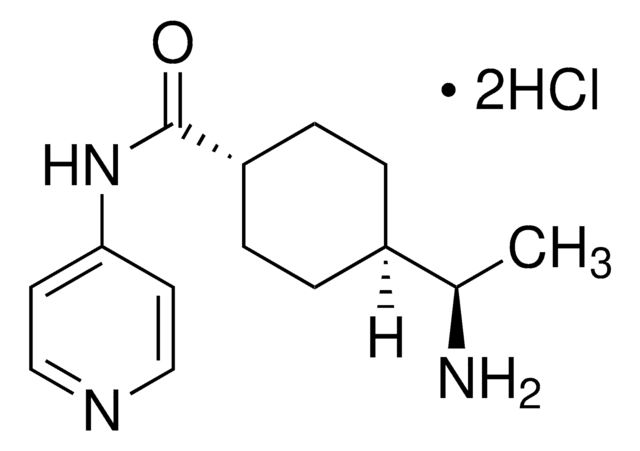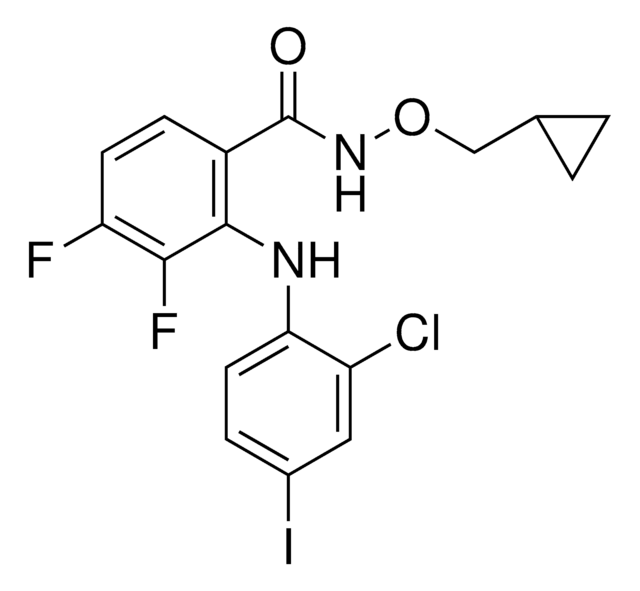SML1966
SK609 hydrochloride
≥98% (HPLC)
Synonym(s):
4-(2-Chlorophenyl)butan-2-amine hydrochloride, ES609, SK609•HCl
Sign Into View Organizational & Contract Pricing
All Photos(1)
About This Item
Empirical Formula (Hill Notation):
C10H14ClN · HCl
CAS Number:
Molecular Weight:
220.14
UNSPSC Code:
12352202
NACRES:
NA.77
Recommended Products
Assay
≥98% (HPLC)
form
powder
storage condition
protect from light
under inert gas
color
white to beige
solubility
H2O: 2 mg/mL, clear
storage temp.
2-8°C
Biochem/physiol Actions
Dopamine D3 receptor (D3R) selective agonist
SK609 (ES609) is a Dopamine D3 receptor (D3R) selective agonist with a bias towards the G-protein-dependent pathway rather than recruiting β-arrestin-2 and an EC50 value of 113.9 nM for activation of ERK1/2 phosphorylation. SK609 has been shown to reverse akinesia and reduce L-dopa-induced dyskinesia in a hemiparkinsonian rat model of Parkinson′s desease. It does not induce desensitization of D3R.
Storage Class Code
11 - Combustible Solids
WGK
WGK 3
Flash Point(F)
Not applicable
Flash Point(C)
Not applicable
Choose from one of the most recent versions:
Certificates of Analysis (COA)
Lot/Batch Number
It looks like we've run into a problem, but you can still download Certificates of Analysis from our Documents section.
If you need assistance, please contact Customer Support
Already Own This Product?
Find documentation for the products that you have recently purchased in the Document Library.
Sherise L Simms et al.
Neuropharmacology, 100, 106-115 (2015-04-22)
Synthetic dopaminergic agents have found utility in treating neurological and neuropsychiatric disorders since the beginning of 19th century. The discovery of Levodopa (l-dopa) to effectively treat motor symptoms of Parkinson's disease (PD) revolutionized the therapy and remains a gold standard
Wei Xu et al.
ACS chemical neuroscience, 8(3), 486-500 (2016-11-02)
Dopamine receptors play an integral role in controlling brain physiology. Importantly, subtype selective agonists and antagonists of dopamine receptors with biased signaling properties have been successful in treating psychiatric disorders with a low incidence of side effects. To this end
Our team of scientists has experience in all areas of research including Life Science, Material Science, Chemical Synthesis, Chromatography, Analytical and many others.
Contact Technical Service








